Ibrahim Ali Khan and Khushi Kapoor’s Nadaaniyan released on OTT this March and sank without a trace. Nearly four months later, Ibrahim is back, this time as the antagonist in Karan Johar’s production Sarzameen with Kajol and Prithviraj Sukumaran in key roles.
Actor-writer and former Mr India, Viraf Patell, since he quit his sailor’s job to pursue a career in acting, had to climb the ladder slow in Bollywood. He didn’t come to Mumbai with a famous surname 21 years ago.
Pune-born Patell admits having a surname associated with Bollywood would have had its advantages, but he is uncertain what it might have cost him.
“I am sure it would have given me easier access to makers but I don’t know what all it would have taken away from me,” Patell says. “I would be an artist with different upbringing, exposure and world views. For better or worse is a matter of conjecture.”
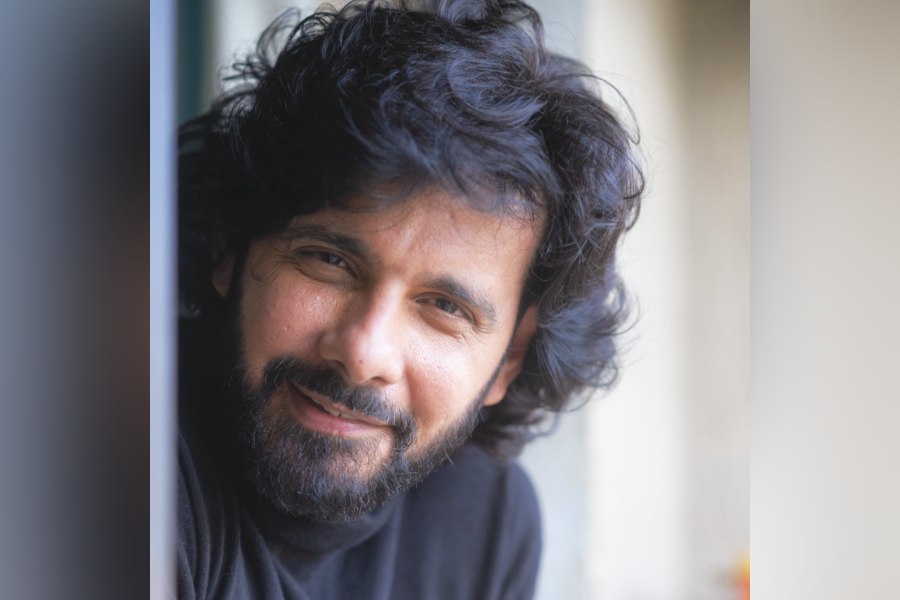
Viraf Patel Instagram/@virafpp
In January 2023, Patell shared screen space with Shah Rukh Khan in Pathaan. The same month came Kutch Express, a Gujarati film that he co-wrote (his first writing credit) and also acted in. In 2024, he acted in the YRF production Maharaj, directed by Siddharth P. Malhotra with Aamir Khan’s son Junaid. The Gujarati thriller, Shubhchintak, he wrote and acted in, released this May.
Patell does not use Bollywood’s favourite ‘N-word’, though he does not deny its existence.
“Yes, there is nepotism in the film industry but I see it in other sectors as well. Be it politics or business and I think it’s ok,” says Patell. “It shows families still care for their kin. A parent handing over tools, skills or legacy to a child is the oldest thing known to mankind.”
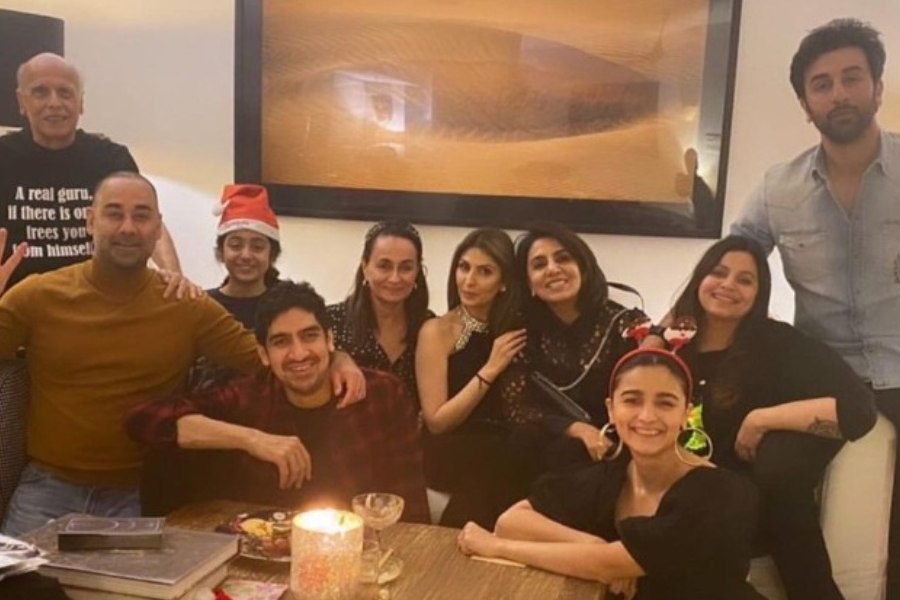
The Kapoor and Bhatt family at Christmas party Instagram/ @aliabhatt
Over the last three decades, Saif Ali Khan, Abhishek Bachchan (who completed 25 years in the industry on Monday), Shahid Kapoor have carved their own space in the industry. Then came Alia Bhatt and Ranbir Kapoor. All of them have displayed their talents and proved the naysayers wrong, though the N-tag never really left them.
Delhi boy Pawan Sony, who was part of the writing team for Sixteen, Dil Dosti Etc, Blurr and Stree, packed his bags in 2004 and moved to Mumbai to be a script writer. The other option this philosophy student from Zakir Hussain Delhi College had was to join his father’s welding machine factory.
“Had I joined my father, I too would have been a nepo-kid,” says Pawan. “Like in every industry, people develop a comfort level working with a set of people and want to repeat them. That is not wrong.”
Only nobody much talks about the welding machine industry. They do talk about the film industry, the films, the stars and also the star kids, many of whom decide to follow their parents.
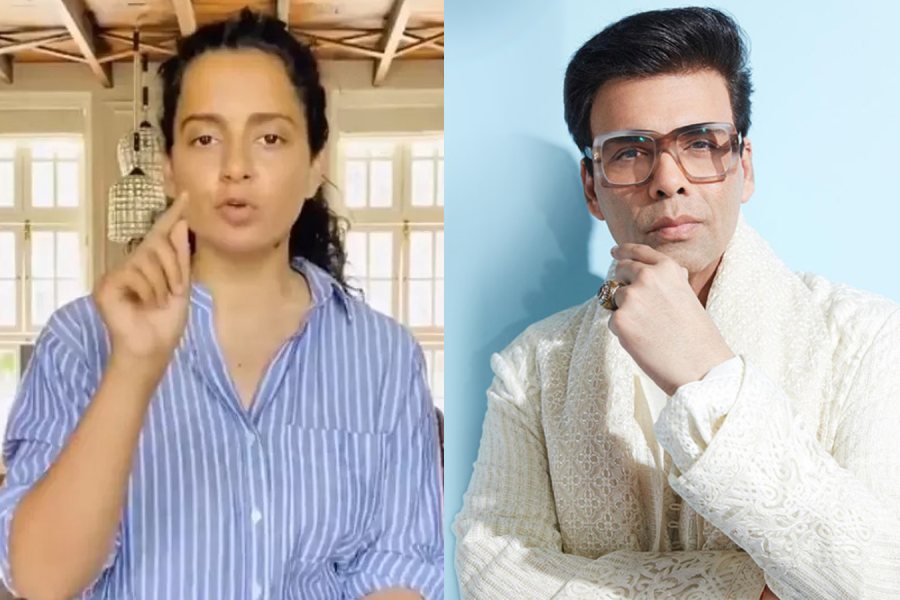
Kangana Ranaut; Karan Johar File photo
The N-word remains dirty, seven years since Kangana Ranaut dropped the ‘nepotism’ bomb right on the face of filmmaker Karan Johar during a talk show, addressing him as the “flag-bearer of nepotism” who runs a “movie mafia”.
The BJP Lok Sabha MP from Mandi, Ranaut has kept the N-bomb in her arsenal. Last she hurled it was at the Gandhi siblings, Rahul and Priyanka, during a media event held in Delhi in March 2024.
The list of actors who have earned the wrath of Ranaut are Alia Bhatt, Ranbir Kapoor, Deepika Padukone, Swara Bhasker, Taapsee Pannu and Ayushmann Khurrana. Other than Bhatt and Kapoor, the others did not come from a so-called filmi family.
The same Ranaut when speaking about the film industry in the South, especially Tamil and Telugu, observed there was no “bullying or groupism”.
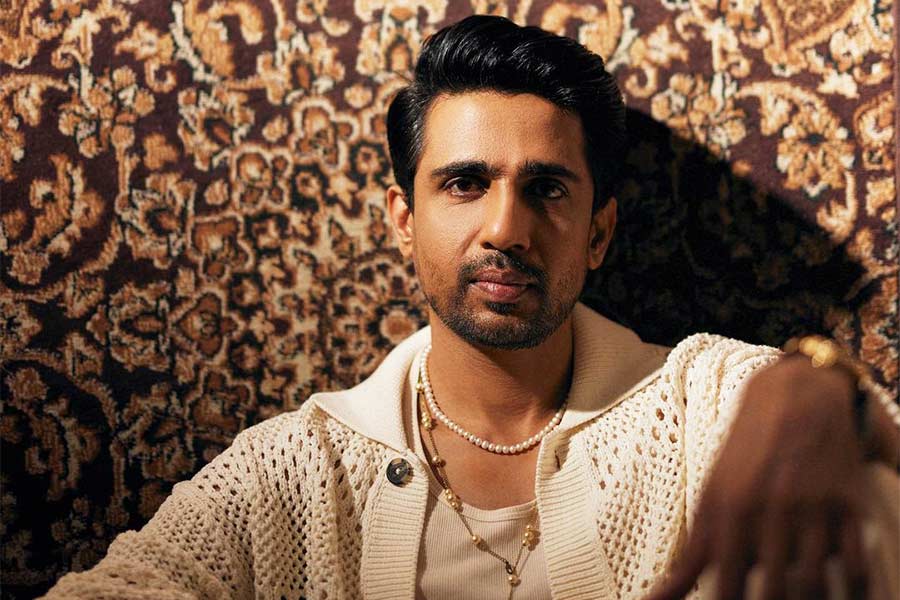
Gulshan Devaiah File photo
Bangalore-born actor Gulshan Devaiah does not consider speaking on the subject a taboo. He also differs with Ranaut in the South vs Hindi debate.
“In the South, someone like me or Vijay (Varma) couldn’t stand a chance,” says Devaiah, adding he finds the debate on nepotism unnecessary. He rolls out the names of Priyanka Chopra, Rajkumar Rao, Karthik Aryan and few others including himself and his Dahaad co-actor Vijay Verma, who did not have any connection with the film industry.
“There are cliques and favourites here in the Hindi film industry. Some people may never work with some people but they will let them be,” he says.
“In the South, the industry is still very much family controlled, from the release and everything, whereas Hindi film industry has been sufficiently corporatised. Most of the stars (in the South), especially males, are second and third generation actors,” adds Devaiah.
The Telugu industry, for example, churns out around 200 films a year and most aspects of filmmaking are controlled by five “super-families”. Their sons become the “power stars”, the “stylish stars”, “energetic stars” and other nicknames get attached to them. These five families — the Allu-Chiranjeevi and Akkineni-Daggubati clans and the Nandamuri family — have in-house actors, directors, cinematographers, and costume designers. They own production houses and control the distribution system too.

The Allu Arjun and Chiranjeevi family Instagram
A comment made by Telugu film actor Adivi Shesh supports Devaiah’s argument.
“Each family has ten heroes. So for a good role to come by you, you are like choice number 53,” Adivi Sesh had said in a round table in 2022, explaining why he took to writing his own scripts. “There are no auditions for lead roles. The auditions are called for the role of the fourth friend.”
Users of both Quora and Reddit have held endless debate on why nepotism works in the South and is a bad word in Mumbai.
They want to know why “nepotism” in the South is less talked about? They are curious about who the talented “nepo-kids” in the South are.
Devaiah recalls two instances that made him wonder how far curious the masses are about star kids.
The first happened during the shoot of a film, Dum Maaro Dum, in Goa in 2009, where his co-actor was Prateik Babbar, son of Smita Patil and Raj Babbar. The co-actors in the film included Abhishek Bachchan and Rana Daggubati, who bear famous surnames.
The second happened during the shoot of the series Dahaad, where Aamir Khan’s daughter Ira was an assistant.
“Some of the onlookers did not even know his name or how he looked like. They would mistake me for Prateik and approach. Similarly, with Ira. Word had spread that she was in the unit and people flocked to the set, curious how she looks like,” says Devaiah.
“If someone wants to capitalise on this intrigue factor, she or he cannot be faulted. It is not illegal. There is a lot of curiosity about what Shah Rukh Khan’s children are going to do. And that is an advantage for someone to monetise in an otherwise cutthroat industry,” he adds.
The noise over nepotism it appears is heard only when an actor or director’s daughter/son stands before the camera in her/his make-up and costume. A filmmaker’s son becoming a filmmaker, an actor’s son deciding to become a director or even a lyricist’s son penning songs like his father are rarely talked about.
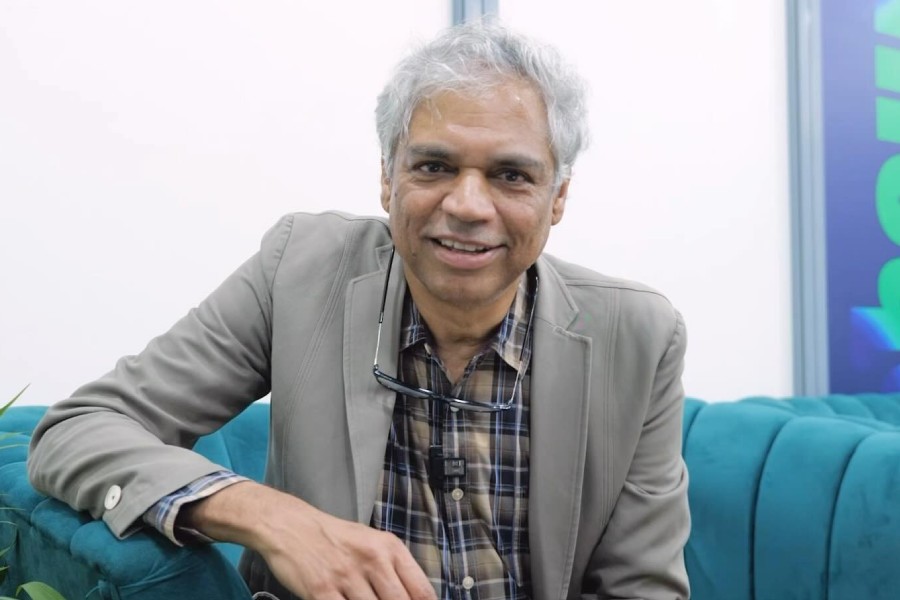
Prakash Belawadi Instagram/ @grumpyoldbelawadi
“The outrage over sons/daughters getting acting breaks is because it is more glamorous. The envy factor is higher,” says actor-director Prakash Belawadi, who has acted in Blockbusters like Pathaan, Madras Cafe, Wazir, Meri Pyaari Bindu and Baby John.
Belawadi credits the South for having the “good sense” and not making much noise about nepotism.
“There is no place for meritocracy in art. Whether I am considered a good actor or bad will always be someone’s opinion. If someone thinks that A is getting better films than B since the former is from a film background, that is their opinion. If some people feel they are more deserving than others, that too is their opinion,” says Devaiah.
Filmmaking in India, cutting across linguistic barriers, is largely a family enterprise. Alongside is the vague conception of “Papa jaisa banna hai (I have to be like my father)” among most teenagers when deciding on their life paths.
Tom Hanks, when confronted with criticism for casting his son in A Man Called Otto, had to take cover under “family business”.
“Look, this is a family business,” Hanks had said in an interview in January 2023. “This is what we’ve been doing forever. It’s what all of our kids grew up in. If we were a plumbing supply business or if we ran the florist shop down the street, the whole family would be putting in time at some point, even if it was just inventory at the end of the year.”

